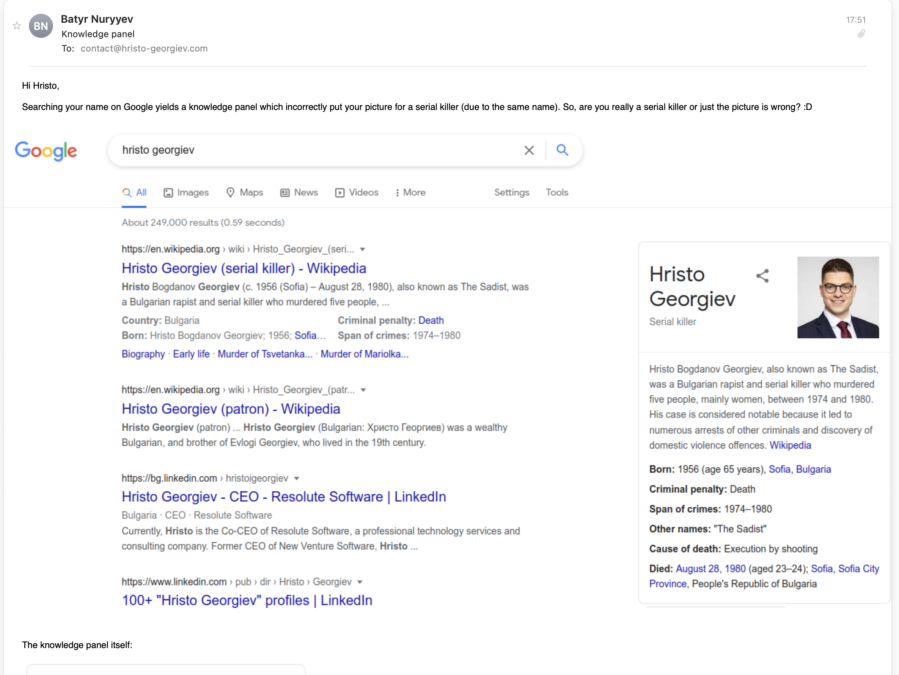
- Google wrongly labeled a man as a serial killer.
- The search result of his name displayed his picture alongside a Wikipedia article about a rapist and murderer.
Imagine you’re up for a job interview or a first date and the person you’re about to meet Google’s you only to find that you’re a serial killer! Surely this is the stuff of nightmares, but for a Zurich-based man, it became all too real thanks to Google.
Hristo Georgiev was scrolling through his inbox when he stumbled upon an email from a former colleague. The message warned him that a Google search of his name brought up his image linked to a Wikipedia article about a serial killer.
Turns out, Georgiev, unfortunately, shares his name with a Bulgarian rapist and serial killer, popularly known as The Sadist, who murdered five people between 1974 and 1980. Obviously, anyone who would click through to the Wikipedia article would realize it’s not actually about Georgiev, the engineer. However, something like this could possibly have much darker implications, as Georgiev points out in his blog post about the incident.
The problem apparently occurred due to Google’s Knowledge Graph algorithm that somehow wrongly matched Georgiev’s picture to the article about the serial killer. Google uses Knowledge Graph in its search engine’s results to gather information from a variety of sources. This information is presented to users in the form of an information box next to the search results. Below is how the search result for Georgiev’s name looked like.

“The rampant spread of fake news and cancel culture has made literally everyone who’s not anonymous vulnerable. Whoever has a presence on the internet today has to look after their online representation,” Georgiev warned in his blog post.
Thankfully, Google fixed its error after Georgiev approached Hacker News about it. The website accelerated the issue and his image is no longer associated with that of the serial killer. However, many commentators on the portal pointed out that Google’s Knowledge Graph boxes are littered with errors.
“I’ve also seen bad KG results for medical conditions, listing the wrong symptoms or describing easily-treatable maladies as ‘Incurable.’ Now I actively ignore the info box and intentionally click through to an authoritative non-Google website,” wrote one user.
Have you ever seen an incorrect search result in Google’s Knowledge Graph? Take our polls and tell us about your experiences in the comments section below.
No comments:
Post a Comment